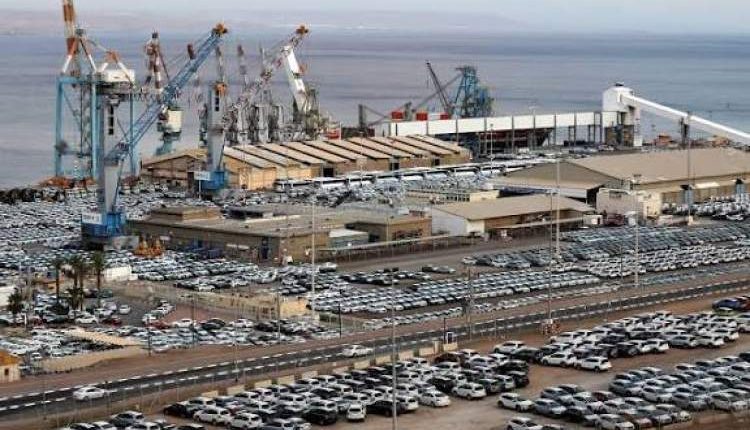Calcalist: Gaza Ceasefire Will Not End “Eilat Crisis” or Yemeni Naval Blockade
The Israeli economic daily Calcalist reported on Thursday that the prevailing optimism surrounding the ceasefire agreement “means little” for the port of Eilat, which has remained closed for nearly two years due to the naval blockade imposed by Sana’a forces, suggesting that the truce will not lead to the resumption of port operations anytime soon.
In its report, Calcalist wrote:
“Despite celebrations marking the end of the war and optimistic projections for the economy, Eilat Port remains far less hopeful.
Since November 2023, the port has drastically reduced most of its operations — except for limited naval services — and continues to face severe financial distress. Even government aid worth 15 million shekels, supplemented by additional support from the Histadrut, has failed to revive its activity.”
The paper added that while the port authorities welcomed the ceasefire and the release of prisoners, they recognize that these developments are unlikely to impact operations directly.
Calcalist explained that Yemeni missile threats have driven major shipping companies away from Eilat, halting the unloading of vehicle cargo — once the port’s most profitable sector.
“Even if the Yemenis honor their commitment and stop firing in solidarity with the Palestinians,” the report continued,
“they still control the Bab al-Mandab Strait and continue to prevent vessels from transiting toward Eilat.”
The newspaper further noted that Yemen now controls a vital maritime corridor and “has no incentive to relinquish it.” The issue, it said, was not included in the recent ceasefire documents because Yemen was not a party to the negotiations.
“Over the past two years,” Calcalist added, “Israel has done nothing to neutralize the Yemeni threat or restore maritime traffic through the strait.”
From the Yemeni side, the report said, there is satisfaction with maintaining this strategic achievement, one that “would not have been possible if Israel were not already entangled on multiple fronts.”
According to Calcalist, the only plausible scenario for reopening Eilat Port would arise if calm prevails along Israel’s borders, prompting the government to address the Yemeni issue comprehensively, “just as it did with Iran in Operation Rising Lion.”
Only then, the paper suggested, could the sea route — the lifeline of Eilat — be reopened, allowing vehicle and goods shipments to resume to the southern city.
“In that case,” Calcalist concluded, “the state would likely demand a new emergency plan and stricter commitments to prevent a recurrence of such a crisis — the near-total shutdown of one of Israel’s most important ports.”

